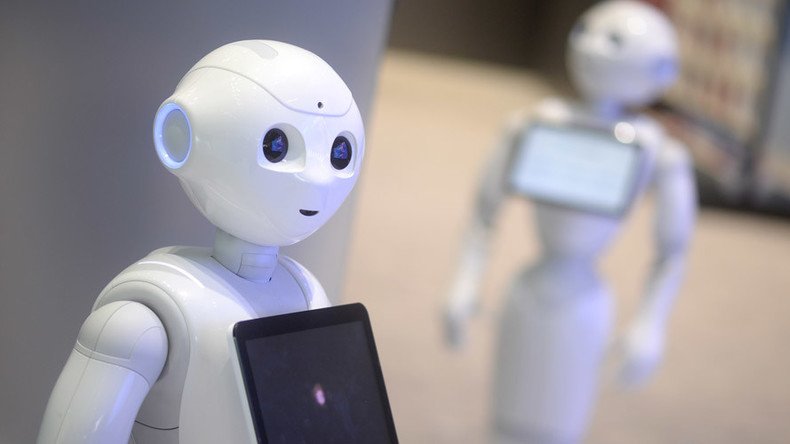Robots could be the worst thing ever for humanity, warns Stephen Hawking

Artificial Intelligence (AI) could be the worst thing to ever happen to humanity, acclaimed physicist Stephen Hawking has warned.
The Cambridge University professor predicts robots could develop “powerful autonomous weapons” or new methods to “oppress the many.”
His chilling prophecy was made on Wednesday at the launch of The Leverhulme Centre for the Future of Intelligence (CFI), which has been created to monitor the implications of rapidly developing AI.
Hawking, Musk, Wozniak warn of global AI arms race http://t.co/5uwJL3VxCFpic.twitter.com/kie2TKG4bn
— RT UK (@RTUKnews) July 28, 2015
“I believe there is no deep difference between what can be achieved by a biological brain and what can be achieved by a computer,” Hawking said.
“It therefore follows that computers can, in theory, emulate human intelligence – and exceed it.”
Hawking warned AI “could develop a will of its own – a will that is in conflict with ours.”
“The rise of powerful AI will be either the best, or the worst thing, ever to happen to humanity.”
Last week, Parliament’s Science & Technology Committee warned the government is not prepared for the arrival of robots, which will “fundamentally” change people’s lives.
Robots will 'liberate' a quarter of workforce by 2035 - Deloitte https://t.co/keHxH0GT5apic.twitter.com/28uVgvsD0g
— RT UK (@RTUKnews) July 12, 2016
AI such as driverless cars and supercomputers that can help doctors with medical diagnoses will soon be the norm, the committee said.
MPs warned the government does not have a strategy in place for developing new skills to help workers succeed in a world with greater reliance on AI.
Earlier this month scientist’s at Google’s DeepMind division announced they have developed an AI computer program that uses basic reasoning to learn complex systems, such as the London Underground.
The advancement could mark a major breakthrough in the development of AI, as the “differentiable neural computer” (DNC) can solve problems without any prior knowledge.












